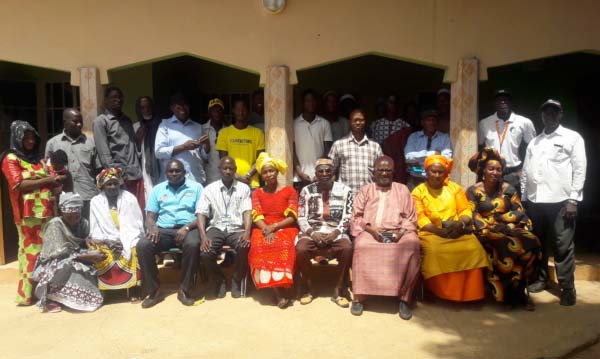
The
governor of North Bank Region has reiterated that climate change is, and
continues to be a major economic, social & environmental problem of great
concern to many countries including The Gambia. He has therefore called for
aggressive and integrated approach in building local capacities on climate
resilience in a bid to reduce the negative impact and phenomenon on the
livelihood of the local population.
Ebrima
Dampha made this revelation during the opening ceremony of a day’s
sensitisation outreach programme targeting local government officers,
communities, Community Based Organisation (CBOs), Women Associations within the
NBR on the impacts of climate change on grassroots held at Kerewan, NBR.
The
programme was funded by the Global Climate Change Alliance project (GCCA+) of
the European Union (EU) and was implemented by the National Environment Agency
(NEA).
According
to the regional governor, the outreach is a programme geared towards
sensitisation on how grass roots climate change impacts our environment and
livelihood. This, he said demonstrates
the good partnership that exists between the government of The Gambia and the
European Union in this crucial crusade against climate change and its impacts
on people’s lives and livelihoods. Buttressing on, he further revealed that
climate change is the biggest challenge to our development efforts.
“Therefore, I took note of the excellent
collaboration of the European Union in their relentless efforts at ensuring
that The Gambia not only gets an integrated national plan and strategy to
combat climate change and its effects but also to help build up the resilience
of our communities against it, particularly those along coastal and marine
zones, but in effect, the country all over. This is in line with our own
National Climate Change policy and indeed all other international environmental
treaties that the Gambia is signatory to,” Governor Dampha pointed out.
‘It
is important to note that both mitigation and adaptation efforts are geared
towards the improvement of our lives and those of our children yet unborn,’
Governor Dampha stated. He advised participants to effectively play their part
and contribute meaningfully in all climate actions. “Each and every one of us
in our capacities and competencies should work harder to achieve these goals,”
he preached.
Governor
Dampha further called on them to actively participate in the dissemination of
whatever knowledge gathered to the people they represented and ensure proper
implementation of the workshop recommendations.
Dilating
on the over view of the project, M&E officer of the project, Fafanding
Kinteh, noted that the project aims at consolidating results and positive
experiences of the previous GCCA project “ Support to The Gambia for Integrated
Coastal Zone Management (ICM) and the mainstreaming of Climate Change being
implemented from 2013 – 2016.
According
the national resource person, Ismaila Senghore, climate change is the result of
negative human activities that produce gases which warm up the world’s atmosphere
resulting in atmospheric changes in various degrees in various places with
various impacts.The impacts affect the environment, resources and people’s
livelihoods in all domains. Concluding, Senghore said the impact of climate
change has adverse effects on agriculture, health, water resources and our
livelihood mechanisms.


